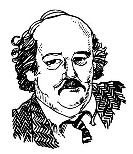(Syndicated to Kansas newspapers Nov. 9, 2015)
 Wonder how this budget shortfall for the current and next fiscal year works out politically?
Wonder how this budget shortfall for the current and next fiscal year works out politically?
Wait, this is a real dollars-and-cents problem here, revenues for this and next fiscal year falling about $159 million in the remaining seven months of this fiscal year and $194 million in the year that starts July 1.
And, remember, we’re in a two-year budget, so when legislators approved the spending plan last session (it was June) they were thinking: Maybe a little touch-up for the second year and we’re out on the campaign trail.
Well, that’s all gone now. The governor is taking the lead with about $109 million of spending cuts in the current year, including another $48 million nick of the Kansas Department of Transportation budget, for a total of $350 million in this year alone, and some other cuts and shuffles that most of us won’t notice.
Look for that touch-up of the budget this coming session to include more cuts in spending and maybe, just maybe in an election year, a tax increase or two.
But practically, the state constitution calls for a balanced budget, if even just $1 is in the bank every July 1, so it’s going to be done. No telling what happens if the Legislature and governor don’t put together a balanced budget. Do they lose their parking slots? Are they arrested? Does the Kansas Supreme Court or someone dock legislators’ pay? As we said, there’s no telling because it hasn’t happened since the earth cooled enough that the Statehouse could be built and restaurants started popping up so lobbyists can take lawmakers out for lunch and dinner and drinks.
So, ugly as that might be, there’s still the politics to be wrestled with.
Those politics started in 2012, when the Legislature passed a vastly expanded version of an income tax bill Gov. Sam Brownback proposed, and though it probably wasn’t a good move, he signed the giant tax cuts into law.
It has taken three years, but those tax cuts have come home to roost, not spurring the increased revenues that was the goal, resulting in revenue shortfalls.
The politics? Well, Brownback doesn’t stand for re-election, so he’s in the clear.
Do Republicans call the cuts in spending to balance the budget a long-overdue reduction in the size of government which most people who vote Republican revere? Who isn’t for cutting wasteful or maybe just unproductive spending of our tax dollars—for those who haven’t figured a way to turn themselves into Limited Liability Companies so they don’t have to pay state income taxes?
Do Democrats, who don’t have enough votes in either chamber to pass or kill legislation, just complain and blame Republicans as they have the past three years? Or do Democrats come up with a plan, a budget or the tax increases necessary to prevent further cuts into programs and aid to local units of government?
It’s a matter of weighing which is the politically most advantageous.
Republicans, of course, with the legislative majority can assert that they tried a dramatic new taxation philosophy that didn’t work, but led to massive spending cuts that they can sell as efficiencies. And, so far, the spending cuts haven’t shown up in the everyday lives of most Kansans—unless they build highways for a living.
Democrats can point fingers at shaved expenditures for K-12 education and highways. But don’t look for a Democrat-proposed budget because it is going to require tax increases which they probably don’t have the votes to hang on Republicans, and they don’t want to cut social programs that are needed by the poor and the ill and their children.
Where do the politics of this revenue shortfall go? It’s going to depend on who thinks up the catchiest phrase for their campaigns. Wonder what it will be?
